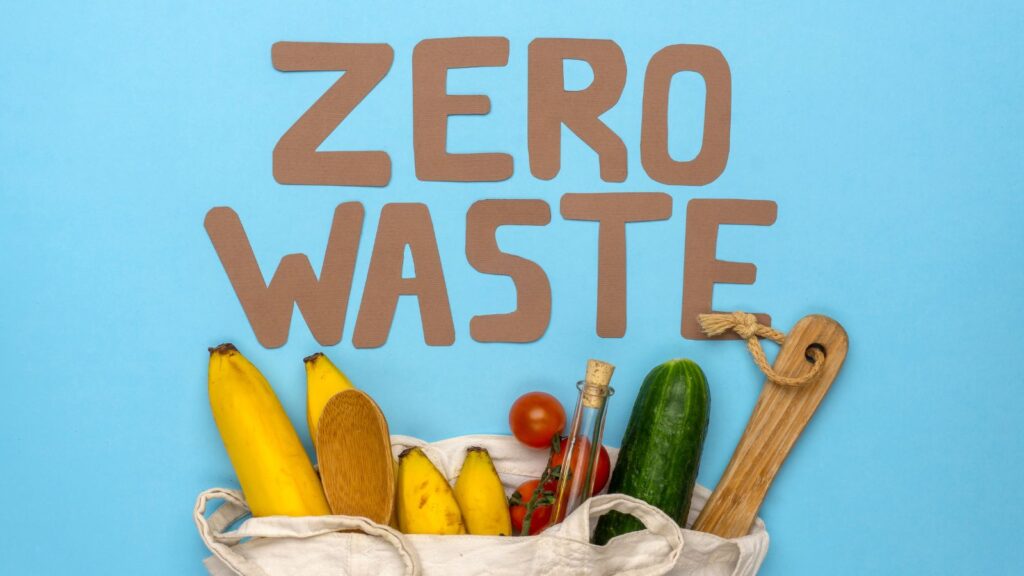Sustainable cooking is more than just a culinary trend; it’s a conscious effort to make environmentally friendly choices in the kitchen. As people become increasingly aware of their ecological footprint, the demand for sustainable practices in everyday life, including cooking, has surged. This approach not only promotes the use of locally sourced and seasonal ingredients but also emphasizes reducing waste and conserving energy.
By adopting sustainable cooking methods, individuals can enjoy delicious meals while contributing to the health of the planet. This practice involves understanding the impact of food production and making mindful decisions that support biodiversity and reduce carbon emissions. Whether it’s choosing organic produce, minimizing food waste, or using energy-efficient appliances, sustainable cooking empowers individuals to make a positive difference. As more people embrace this lifestyle, the collective impact can lead to a more sustainable future for generations to come.
What Is Sustainable Cooking
 Sustainable cooking embodies a holistic approach to food preparation, balancing environmental responsibility and culinary enjoyment. It focuses on minimizing environmental impact through thoughtful practices. Emphasizing the use of fresh, locally sourced ingredients supports local farmers and reduces transportation emissions, promoting community resilience. Selecting seasonal produce further reduces reliance on energy-intensive storage methods.
Sustainable cooking embodies a holistic approach to food preparation, balancing environmental responsibility and culinary enjoyment. It focuses on minimizing environmental impact through thoughtful practices. Emphasizing the use of fresh, locally sourced ingredients supports local farmers and reduces transportation emissions, promoting community resilience. Selecting seasonal produce further reduces reliance on energy-intensive storage methods.
Reducing food waste stands at the core of sustainable cooking. Creative meal planning and appropriate portion sizing prevent excess and encourage full utilization of ingredients. Composting organic waste closes the loop, returning nutrients to the soil and limiting landfill contributions.
Sustainable cooking extends to ethical sourcing of animal products, preferring those from humane practices. This consideration supports animal welfare and minimizes the carbon footprint associated with large-scale livestock production. Adopting sustainable cooking practices nurtures environmental stewardship and aligns culinary habits with ecological goals, fostering a more sustainable lifestyle.
Sustainable Cooking Techniques
Utilizing energy-efficient appliances in kitchens reduces energy consumption. Choosing induction cooktops, energy-rated ovens, and pressure cookers lowers electricity usage. Implementing batch cooking techniques conserves resources by minimizing cooking time. Preparing large portions at once saves energy and reduces repeated cooking instances. Storing meals in reusable containers supports waste reduction efforts.
Embracing zero-waste cooking approaches minimizes environmental impact. Using whole foods, including peels and stems, reduces waste. Making stocks or soups from vegetable scraps exemplifies this technique. Composting leftovers contributes to sustainable waste management by enriching soil.
Supporting plant-based cooking techniques significantly improves ecological outcomes. Preparing meals using legumes and grains reduces reliance on resource-intensive protein sources. Creative use of herbs and spices elevates plant-based dishes, aligning them with sustainable goals.
Choosing Local and Seasonal Ingredients
Selecting local and seasonal ingredients plays a crucial role in sustainable cooking. Local produce demands fewer resources for transportation, reducing carbon emissions. For example, buying fruits and vegetables from nearby farmers supports the community and lessens the environmental impact of long-distance logistics. Seasonal ingredients often require fewer artificial interventions, making them more environmentally friendly. When produce grows naturally with the season, it typically necessitates less energy for cultivation.
Local markets and farmers’ markets offer fresh options, improving the nutritional value of meals. Seasonal produce tends to be more flavorful and nutritious since it’s harvested at peak ripeness. This approach supports biodiversity by encouraging diversified farming practices tailored to different growing conditions throughout the year.
Buying locally also boosts local economies and creates a direct connection between consumers and producers. It fosters transparency about cultivation methods, promoting sustainable agricultural practices. By selecting local and seasonal ingredients, individuals enhance the sustainability of their cooking practices while supporting their communities and the planet.
Benefits of Sustainable Cooking
Sustainable cooking offers numerous benefits that extend beyond the kitchen. By choosing local and seasonal ingredients, individuals support local economies and enjoy fresher and more nutritious meals. This approach reduces carbon emissions and promotes biodiversity, aligning culinary practices with environmental goals. Embracing zero-waste techniques and energy-efficient methods not only minimizes environmental impact but also fosters creativity and resourcefulness in meal preparation. Ethical sourcing of animal products further supports humane practices and reduces the carbon footprint associated with livestock production. As more people adopt sustainable cooking, they contribute to a healthier planet and a more sustainable future, making a positive impact on both personal well-being and global ecological health.

